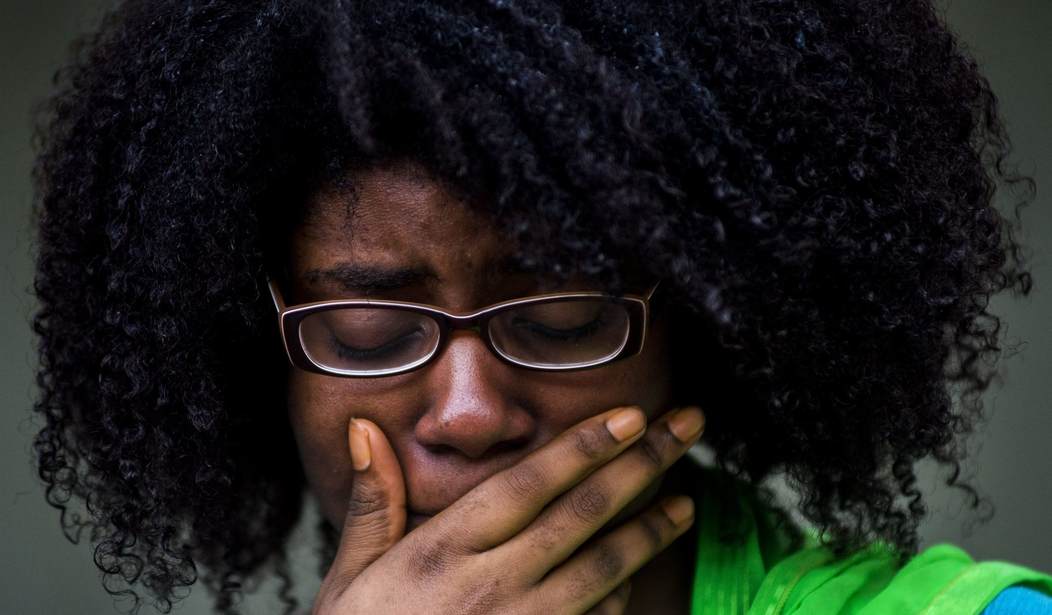Students wrongly accused of sexual misconduct by campus disciplinary systems stacked in favor of the accuser are winning vindication in court. Judges are tossing out the life-ruining punishments meted out by these "guilty until proven innocent" campus tribunals.
This month, Judge Amul Thapar of the federal Sixth Circuit appeals court declared that students charged with sexual misconduct have a right to due process, including a courtroom-like hearing, where the both the accuser and the accused are cross-examined. Thapar's ruling describes cross-examination as "the greatest legal engine ever invented" for "uncovering the truth."
Of course, that's not how it works on most campuses today, where the accuser is prematurely deemed a "survivor" before any evidence of a crime, and doesn't have to face the accused.
Challenges to these Kafkaesque proceedings are heading to the Supreme Court, where Brett Kavanaugh is nominated to serve. If he's seated, he'll have to rule on this question, after having endured his own gauntlet of allegations that he misbehaved sexually as a student. Count on Democrats to demand he recuse himself.
For now Senate Democrats, like campus administrators, are insisting Kavanaugh's accusers "need to be believed," even without cross-examination.
But unlike politicians, judges aren't buying the notion that accusers must always be believed. Across the country, judges are skewering colleges for tilting the system to favor accusers.
In fact, courts are having a bigger impact so far than Secretary of Education Betsy DeVos, whose proposed reforms of sexual assault proceedings nibble around the edges without actually guaranteeing that accused students will be presumed innocent until proven guilty.
Recommended
Since 2011, more than 300 students have gone to court, claiming campus administrators wrongfully disciplined them. The colleges were implementing Obama administration guidelines regarding sexual misconduct. These guidelines discouraged colleges from subjecting the accuser to questioning. The guidelines also set the standard of proof at the lowest possible level, a mere preponderance of evidence. In short, 50 percent plus a feather. On that meager basis, a student could face expulsion and be tarred for life as a sexual predator.
Last year, DeVos rescinded the Obama-era guidelines and promised reforms. But so far the real action is in the courts.
On Sept. 7, Thapar issued a blockbuster ruling for fairness. The case involved two students at the University of Michigan who had sex in their dorm after a party. The male student said it was consensual. The female student claimed she was too drunk to consent, and accused him of sexual assault. The university sided with her and forced him to leave the school. But the court ruled the university erred by refusing to allow the female student to be cross-examined. Coddling the accuser by shielding her from questioning violated the accused's due process rights. The University of Michigan is appealing, teeing the case up for a Supreme Court battle.
A year earlier, the Sixth Circuit ruled in favor of a University of Cincinnati graduate student accused of assaulting a woman student. She failed to show up for a campus hearing, but the university still suspended the male student for a year. That suspension, said the court, violated his due process right to a fair hearing.
State courts are also rejecting campus kangaroo courts. A California appeals court ruled recently that Claremont McKenna College, though private, is obligated to provide due process and assess who is telling the truth in any "he said, she said" sexual misconduct complaint. The college has to allow cross-examination so fact-finders can observe the "demeanor" of each party. The female accuser in that case should have been required to answer questions posed directly or indirectly by the accused man, said Judge Helen Bendix, citing the Sixth Circuit's position.
These rulings are good news for college students. In the future, they'll face less risk of having their lives derailed by a false accusation and the crazy notion that all accusers should never be doubted.
Betsy McCaughey is a senior fellow at the London Center for Policy Research and a former lieutenant governor of New York State.

























Join the conversation as a VIP Member